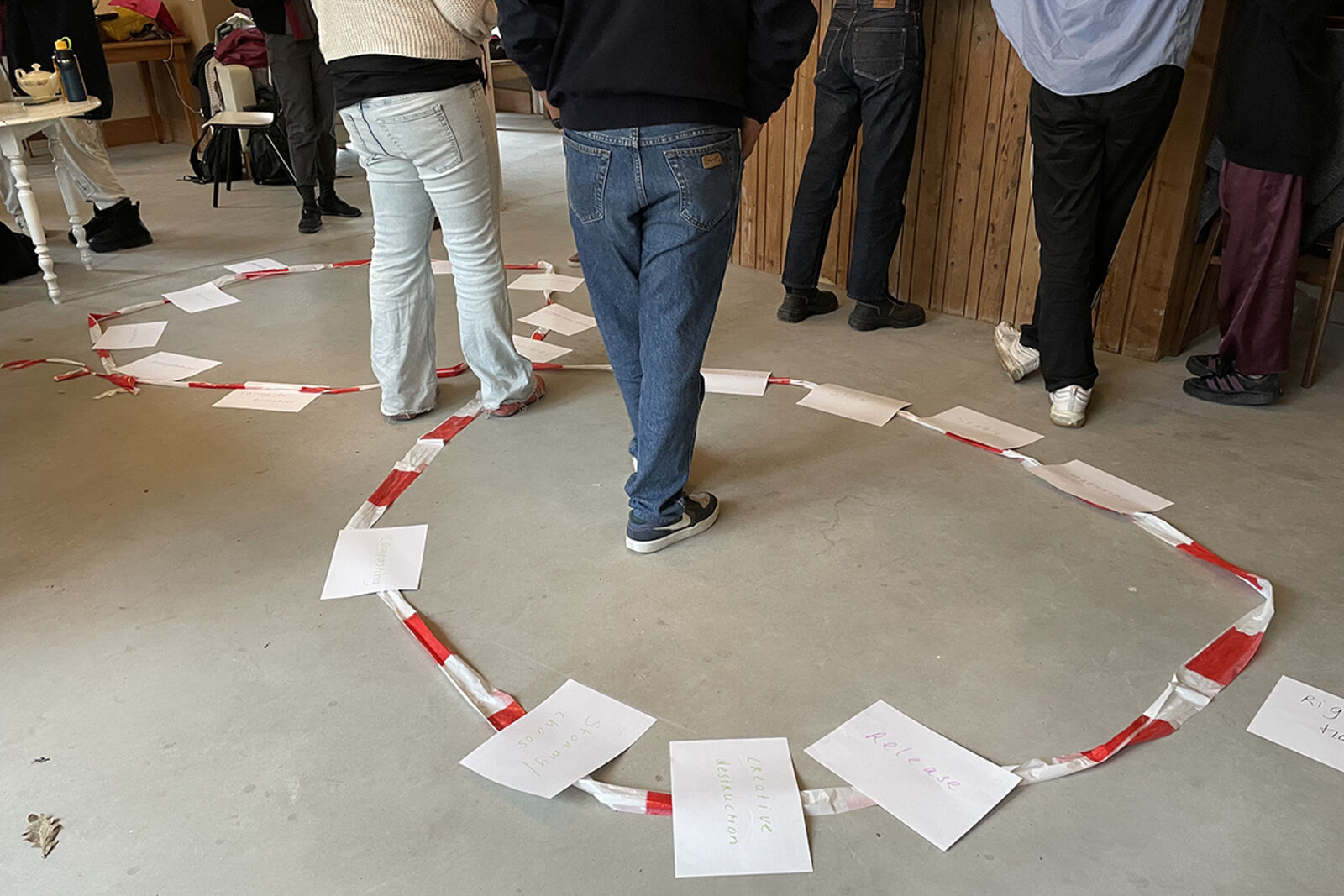Witness Harvest #2: Glimpses from Lumbung Practice

During the first year of the Curatorial Programme Lumbung Practice and Sandberg Instituut's temporary master programme Lumbung Practice, Ilia Pellapaisiotou (intern Curatorial Programme) writes monthly Witness Harvests on the public events and the less visible happenings. Harvest means the documentation of meetings, which is prepared by harvesters as overviews, texts, sketches or drawings and enables the traceability of the meeting. The harvesters listen and reflect. In exaggerated, humorous, poetic or academic form, they document the process from their individual perspective and by means of their own artistic practices.
In the final week before the Christmas break of 2024, the Lumbung Programme hosted a majelis — an Arabic and Indonesian term for a gathering or meeting. The participants reflected on the past three months, both on an individual and a collective level. The majelis took place at De Grond, the residence of the collective We Sell Reality. During one of the sessions the participants collectively brainstormed around their common values and actions related to them. Some of the connected keywords mentioned were: honesty: listening, kindness: making space, humor: making a silly harvest, support: building together/scaffolding, rest: flexibility, trust: letting others decide, communication: care, creativity: giving space, accessibility: learning together: fantasizing/imagining other ways, interdependency: patience, difference: giving, long haul: forgiving, openness: unlearning.
On the second day, Gertrude Flentge — co-host of the programme together with the director of de Appel, Lara Khaldi — used barricade tape to create an infinity symbol. This was meant to illustrate the cyclical, non-linear process that a collective goes through. Gertrude explained that much like the infinity sign, the collective process has no definitive starting or ending point and instead, it is marked by constant change and evolution. Next to the infinity symbol, Gertude identified the stages of a collective’s journey as follows: reorganisation, risking, poverty trap, growth, expanding, strengthening, racing for resources, renewal, conservation, slowness, stability, maturing, rigidity trap, release, creative destruction, stormy chaos, composting. Participants were invited to reflect on where their own collectives currently stand within these stages, leading to a brief discussion about each collective’s current state. The common realisation that emerged was that collectives often cycle through all these stages multiple times through their lifetime, until their ‘death’ — though their ‘death’, as Gertrude emphasized, is not necessarily permanent. At the same time, it became clear that being part of a collective is a dynamic, evolving process, much like the nature of the lumbung itself.